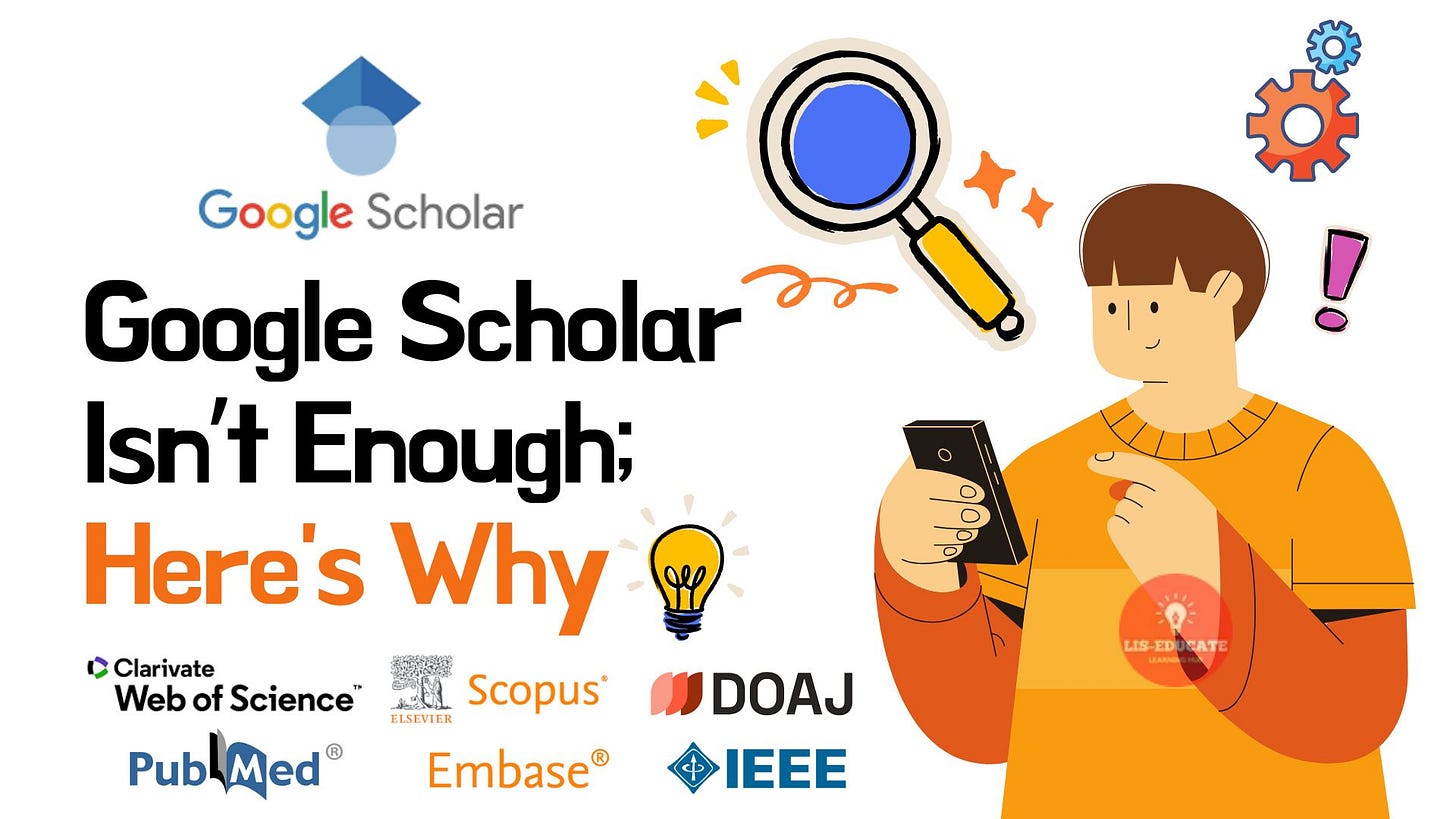Stop Using Only Google Scholar; Here’s Why (and What to Do Instead)
Let me guess: you’re working on a thesis, a research paper, or just trying to stay updated in your field, and like most people, you open up Google Scholar.
It's fast. It's free. It feels academic.
But here’s the truth nobody tells you:
Relying only on Google Scholar for literature search is a dangerous shortcut.
Why? Because Google Scholar includes everything, good, bad, and unfortunately, predatory.
Yes, predatory journals - those shady publishers that mimic real academic journals but skip peer review, publish poor-quality research, and charge huge publication fees. And guess what? Google Scholar doesn’t filter them out. It simply indexes what's out there on the web.
This means your paper, however well-written, might unknowingly cite sources that are not only unreliable but also academically damaging.
"But How Do I Know Which Journals Are Safe?"
That’s the question smart researchers are asking.
The answer? Use reputable databases that actively screen and index quality journals. These platforms don’t just help you find research; they also verify whether an article is legitimate and peer-reviewed.
I’ve put together a list of 15 trustworthy databases you should have bookmarked.
Whether you're in medicine, engineering, or social sciences, these databases will help you find credible, citable, and clean literature without the risk.
🔍 General Research Databases
Web of Science (SSCI, SCI, ESCI, etc.)
A gold standard in research indexing. Use it to check journal impact and reliability.
https://clarivate.com/webofscienceScopus
Comprehensive and widely accepted in academia. Check author profiles and citations too.
https://www.scopus.comGoogle Scholar
Still useful, but only as a starting point. Never your only source.
https://scholar.google.comarXiv (by Cornell University)
Great for early-stage/preprint research in physics, math, and computer science.
https://arxiv.orgScienceDirect
Full-text access to thousands of peer-reviewed articles.
https://www.sciencedirect.comUlrich’s Web
Want to know if a journal is legit? Start here.
https://ulrichsweb.serialssolutions.comDirectory of Open Access Journals (DOAJ)
A trusted space for quality open-access journals.
https://doaj.orgJSTOR
Ideal for humanities, history, and social sciences.
https://www.jstor.org
🏥 Medical Databases
PubMed
The go-to database for biomedical and life sciences literature.
https://pubmed.ncbi.nlm.nih.govEMBASE
Especially strong in drug and clinical research indexing.
https://www.embase.comCochrane Library
Systematic reviews and high-quality evidence for healthcare decision-making.ClinicalKey
Perfect for medical and allied health professionals.
⚙️ Engineering & Tech Databases
IEEE Xplore
The ultimate destination for electrical engineering and computer science papers.
https://ieeexplore.ieee.org/Xplore/home.jspINSPIRE-HEP
Tailored for high-energy physics researchers.
https://inspirehep.net
📚 Social Sciences & Education Databases
ERIC (Education Resources Information Center)
Focused on education research and policy.
https://eric.ed.govSciELO
Covers Latin American, Spanish, and Portuguese research journals.
https://scielo.org
🧩 Bonus Tips for Smarter Searching:
✅ Always verify the indexing status of a journal — even good journals can lose indexing.
✅ Combine databases: for example, WoS + Scopus + PubMed + DOAJ gives a balanced mix of quality sources.
✅ If it’s too easy to publish, or if the journal promises "fast review in 2 days,” be suspicious.
✨ Final Thought
Google Scholar is convenient, but convenience shouldn't come at the cost of credibility.
"In research, what you cite is just as important as what you write."
Start smart. Search smarter. Save this list and keep it close for every literature review, thesis chapter, or publication.


